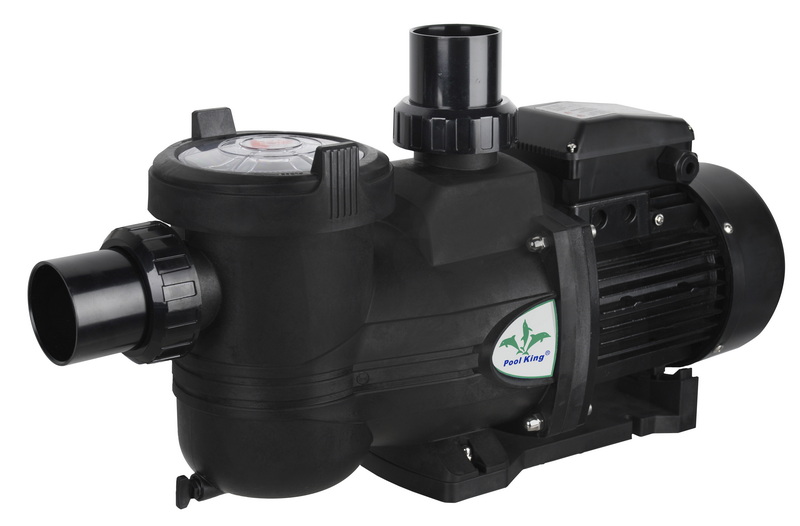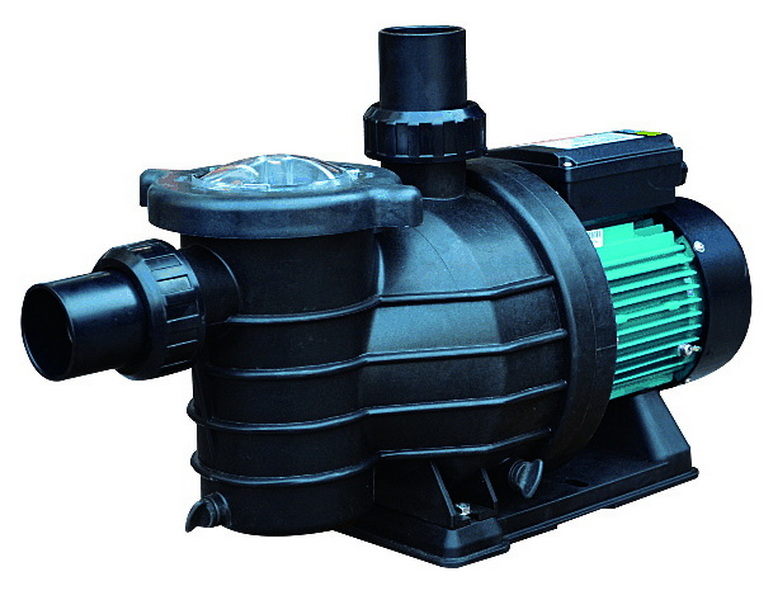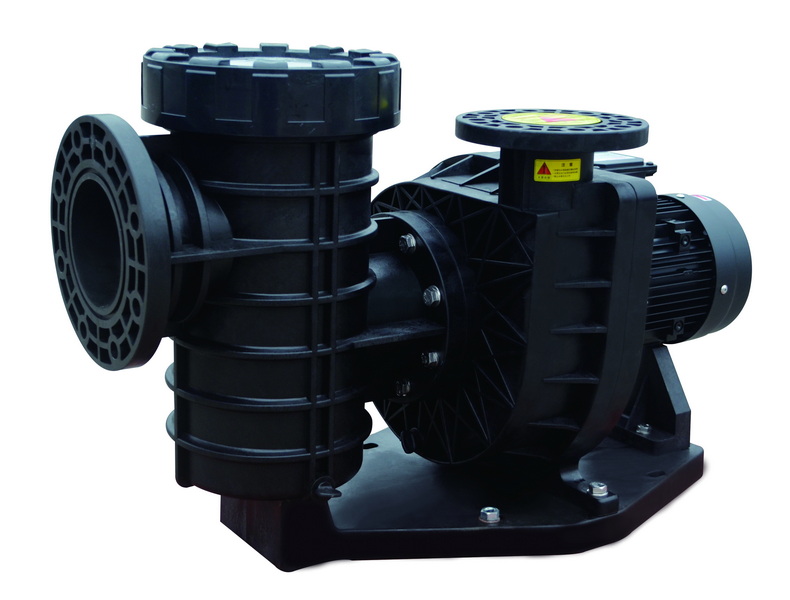Views: 222 Author: Tina Publish Time: 2025-09-07 Origin: Site








Content Menu
● Why Run a Pool Pump in Winter?
● Recommended Winter Pump Run Time
● Factors Influencing Pump Run Time in Winter
>> Pool Size and Pump Capacity
>> Temperature and Weather Fluctuations
>> Filtration System and Pump Type
● Winter Pool Pump Operation Tips
● Winterizing Your Pool Pump: Step-By-Step
● Common Winterizing Mistakes to Avoid
● FAQs
>> Q1: Can I turn off my pool pump completely in winter?
>> Q2: How do I calculate the right pump runtime in winter?
>> Q3: What if my pool pump runs but water still gets cloudy in winter?
>> Q4: Should I run my pool pump overnight in winter?
>> Q5: How often should pool chemicals be checked in winter?
Keeping a pool pump running during winter is essential to maintain water circulation, filtration, and chemical balance, even when the pool is used less frequently. The appropriate length of time for running a pool pump in winter varies depending on geography, pool size, pump type, and weather conditions. Generally, running the pump between 3 to 8 hours daily works well in mild to moderate climates to keep the water clean and prevent equipment damage. In freezing temperatures, running it continuously or using freeze protection features is often necessary to prevent pipes from freezing and cracking.

Despite lower pool usage in winter months, operating the pool pump remains important for several key reasons:
- It prevents algae growth and water stagnation by keeping water moving.
- It ensures chemicals circulate evenly for sanitation.
- It protects plumbing and equipment from freezing damage.
- It maintains filtration by removing debris and contaminants from water circulating through the pool.
Without circulation, water quality can deteriorate quickly, and expensive damage to pumps, pipes, and filters can occur. Therefore, running the pump appropriately in winter is crucial for year-round pool maintenance.[2][10][11]
General Guidelines
For winter climates where freezing is not a frequent threat, operating the pool pump for 4 to 6 hours per day typically provides sufficient circulation. This duration balances energy efficiency with effective water management. Pool owners may reduce run time compared to summer but must still maintain chemical and filtration standards.
Freezing Conditions
In areas facing freezing weather, failure to keep pumps running around the clock can lead to frozen pipes and cracks damaging pool infrastructure. Pools with variable-speed pumps often employ freeze sensors to automatically increase pump time during dangerously cold periods. Continuous operation or freeze protection modes ensure pipes stay warm enough to prevent ice buildup.
Larger pools or more powerful pumps require longer run times to achieve a full turnover of water through the filtration system. Understanding pump flow rate and pool volume helps precisely calculate recommended runtime.
Run time should increase during colder days or freeze warnings and can be shorter on mild, sunny winter days when chemical activity is higher.
Pools remaining open and in occasional use over winter benefit from consistently scheduled pump runs to maintain water quality.
Single-speed pumps run at a fixed rate and require more attentive scheduling, while variable-speed pumps offer flexible speeds and freeze protection features that reduce energy consumption during winter operation.[12]

- Use digital timers or smart automation systems to program run times and incorporate freeze protection based on temperature sensors.
- Schedule pump operation during the warmest daytime hours to maximize chemical effectiveness and minimize nighttime noise.
- Regularly monitor and adjust chemical levels weekly to avoid algae blooms and equipment corrosion.
- Winterize pools by draining water from pumps, filters, and plumbing when temperatures drop below recommended thresholds, especially if the pool won't be used.
- Cover pools with proper winter covers to reduce debris accumulation and heat loss, easing pump workload during winter.
Proper winterization protects the pump from freezing damage and extends its longevity. When water temperature consistently falls below 60°F (15°C), it's time to winterize.
1. Turn Off Power
Safety first: switch off the circuit breaker for the pool pump.
2. Remove and Clean Pump Basket
Clear debris to prevent mold or blockages.
3. Drain Water Completely
Open drain plugs on pump, filter, and plumbing lines. Use a wet/dry vacuum to remove residual water to prevent freezing cracks.
4. Add Pool-Grade Antifreeze
Only use non-toxic antifreeze made for pool plumbing to protect pipes and pumps in harsh climates.
5. Disconnect and Store (Optional)
For severe winters, disconnect the pump and store it in a dry sheltered area.
- Leaving water in the system causing freeze damage.
- Using automotive antifreeze harmful to plumbing.
- Neglecting regular maintenance leading to mold and debris buildup.
Following these steps prevents costly repairs and ensures pump readiness for the next swimming season.[1][4][6]
Running a pool pump during winter is crucial for maintaining clear, healthy water and protecting pool infrastructure. Most pools require 3 to 8 hours of daily pump operation in cooler climates, with continuous running or freeze protection in freezing conditions. Automation with timers and freeze sensors enhances efficiency while reducing energy costs. Proper winterization, including draining and antifreeze application, safeguards equipment in harsh weather. Regular chemical monitoring ensures water quality year-round. Tailoring winter pump management based on local climate, pool size, and equipment type preserves the pool's longevity and readiness for the next season.

A1: Unless your pool is properly winterized, turning off the pump risks stagnant water, algae growth, and freeze damage to plumbing.
A2: Calculate based on pool volume and pump flow rate, aiming for at least one full turnover daily.
A3: Cloudy water may indicate poor circulation or chemical imbalance; check for pump clogs and maintain chemical levels weekly.
A4: It's better to run during the warmest part of the day for chemical efficiency, but freeze protection may require night operation.
A5: Weekly tests and adjustments help maintain water clarity and protect pool surfaces and equipment.
[1](https://clearchoicepoolcaretx.com/how-to-winterize-a-pool-pump/)
[2](https://madimack.com/ca/blog/running-a-pool-pump-in-winter-essential-tips-for-pool-owners)
[3](https://www.aquifypools.com.au/an-in-depth-guide-to-winter-swimming-pool-maintenance/)
[4](https://www.vevor.com/diy-ideas/how-to-winterize-a-pool-h_10134/)
[5](https://www.hayward-pool.co.uk/article/maintenance-of-my-pool/should-drain-pool-winter)
[6](https://www.ergeon.com/blog/post/how-to-winterize-pool)
[7](https://www.astralpool.com.au/pool-and-spa-guides/ultimate-guide-to-maintaining-your-pool-pump)
[8](https://www.youtube.com/watch?v=n4kCKW4uHzg)
[9](https://www.swim-fun.com/articles/guide-to-starting-up-your-pool-after-winter)
[10](https://www.reddit.com/r/pools/comments/189whkt/pool_pump_suggested_runtime_in_winter/)
[11](https://mrpoolman.com.au/blogs/news/maintaining-your-swimming-pool-during-winter-in-australia)
[12](https://intheswim.com/blog/the-winter-pool-off-season-operation-tips.html)
Learn how to convert a frame pool ladder into a safe, professional deck ladder with proper planning, flanges, and anchors. This step‑by‑step guide covers tools, installation, safety checks, maintenance, and OEM opportunities for pool ladder and filtration system suppliers.
This detailed guide explains how to clean under a Confer pool ladder step by step, remove algae and stains, and keep the ladder and hidden areas safe and spotless. Learn tools, cleaners, shock routines, and ongoing maintenance tips to prevent algae from returning under any pool ladder.<br />
This in‑depth guide explains how to clean a resin pool ladder step by step, remove algae, stains, and scale, and protect the ladder from damage. Learn tools, cleaners, safety tips, and maintenance routines to keep every pool ladder safe, bright, and long‑lasting all season.<br />
This comprehensive guide explains how to clean a pool ladder step by step, remove scale, stains, and rust, and protect it from future damage. Learn tools, routines, seasonal tips, plus content ideas to keep every pool ladder safe, stable, and professional‑looking.<br />
Learn how to clean your aluminum pool ladder step by step, remove stains and oxidation, and protect it from corrosion. Discover easy maintenance tips to keep your pool ladder safe, shiny, and long‑lasting all season.<br />
Learn how to hook up pool filter hoses step by step for sand, cartridge, and DE systems. This detailed guide covers skimmer, pump, and pool filter connections, diagrams, leak‑prevention tips, and FAQs so your pool filter runs smoothly all season.<br />
Learn how to hide your pool filter and pump with smart screens, sheds, landscaping, and multi‑purpose furniture. Discover safety rules, noise‑reduction tricks, and design ideas to keep pool filter equipment quiet, accessible, and invisible in a clean, resort‑style backyard.<br />
Learn how to clean a pool filter pump impeller step by step, restore strong water flow, and protect your pool filter system. Discover warning signs, quick cleaning methods, deep disassembly tips, and preventive maintenance to keep your pool crystal clear and your pump running efficiently.<br />
Learn how to change a Bestway pool filter without losing water. Step‑by‑step methods for cartridge and sand filters, essential tools, safety tips, and maintenance advice to keep your Bestway above‑ground pool clear, efficient, and easy to manage all season.<br />
Learn how to change a Bestway pool filter step by step. This detailed guide covers cartridge and sand pool filter pumps, safety tips, backwash and rinse, maintenance schedules, troubleshooting, and FAQs to keep your above‑ground pool crystal clear all season.<br />
Learn how to backwash a Bestway pool filter step by step, including valve settings, backwash and rinse times, pressure‑gauge tips, and maintenance advice. Keep your sand pool filter efficient, protect your pump, and enjoy consistently clear, healthy pool water with simple, repeatable routines.<br />
Learn how to add diatomaceous earth to a pool filter step by step, including safety tips, DE dose calculations, backwashing, DE mixing and skimmer charging, pressure‑gauge checks, and maintenance advice for crystal‑clear pool water and long‑lasting DE pool filter performance.<br />
This in‑depth guide explains how often to clean a Pentair pool filter, with specific schedules for sand, cartridge, and DE systems, pressure‑based rules, seasonal adjustments, troubleshooting signs, and OEM‑level pool filter solutions for international brands and professional buyers.<br />
Learn how often to change an Intex pool filter, how to clean cartridge, sand, and DE filters, and how to keep above-ground pool water crystal clear with simple, effective maintenance habits.<br />
This in‑depth guide explains how often to run a pool filter for clear, healthy water. Learn ideal daily runtime for sand, cartridge, and DE pool filters, how turnover works, seasonal adjustments, energy‑saving tips, and OEM pool filter solutions for professional buyers.<br />
Learn how to safely reset a pool pump step by step, from basic power‑cycling and priming to keypad and factory resets for variable‑speed pool pumps. Avoid damage, restore circulation fast, and know when to call a professional.<br />
A pool pump is the heart of any swimming pool, circulating water through filters, heaters, and sanitizers to keep it clean, clear, and safe. Learn what a pool pump does, how it works, how long to run it, and how to choose efficient OEM pool pump solutions for residential and commercial pools.<br />
Learn how to hook up a swimming pool pump the right way with this 2,000‑plus word step‑by‑step guide. Discover planning tips, plumbing and wiring basics, priming advice, troubleshooting ideas, and essential pool pump FAQs for cleaner, clearer pool water.<br /> <p> </p> , and maintain a pool pump so your pool water st
This in‑depth 2026 guide explains how much for pool pump, covering typical prices by type, pool size, and brand, plus installation, repair, and energy costs, and OEM options for brands, wholesalers, and manufacturers seeking efficient, high‑value pool pump solutions.<br />
This detailed guide shows how to hide Pool pump equipment with fences, screens, landscaping, benches and rock features while preserving ventilation, safety and easy maintenance, so your Pool pump stays quiet, discreet and reliable.<br />
